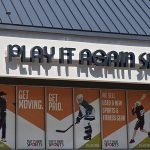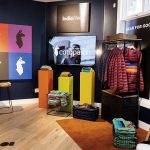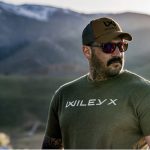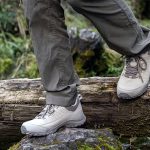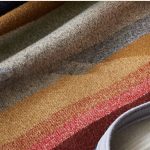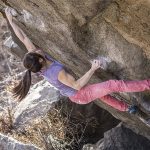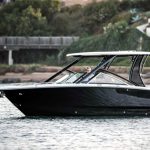Consolidation in the stand-up paddleboarding, or SUP, industry took a couple of big strokes forward at the Surf Expo last week when two better-known companies announced they had been acquired.
On Monday, Jan. 5, Boardworks of Carlsbad, CA. announced it had been acquired by Confluence Outdoor, one of North America's largest paddle sports companies. Boardworks makes paddle boards, surf boards, paddles, and accessories under the Boardworks brand name as well as under the licensed brands of Infinity, Badfish, Morrelli & Melvin, Hynson, Strive, and Hansen.
The next day, Surf Technicians, LLC (SurfTech) of Santa Cruz, CA announced it had been acquired by Triple D Corporation Company Limited, an investment company in Thailand, where the company has sourced boards for years. The deal consolidates ownership under a single investor and provides much stronger financial support, the companies said.
The deals marked the second and third acquisition of a leading SUP brand since January, 2014, when Minnesota-based Wenonah Canoe Inc. announced it had acquired C4 Waterman, of Oahu, Hawaii.
SUP came out of big wave surfing, but has metastasized into multiple niche markets a la mountain biking. Its seen its greatest growth in recent years on the Intracoastal Water Way that runs from Texas to New England and inland, where people are using stand-up paddleboards to practice yoga, work on their abs, run rivers and surf whitewater rivers.
Surf Expo has been honored as one of the fastest growing trade shows in the country in recent years thanks in part to explosive growth, which has caused some to draw comparisons to the early days of snowboarding, which spawned dozens of brands in the 1980s before consolidating.
Vendors have encountered the usual ups and downs of any new industry, including uneven quality and fulfillment, fragmented ownership and a lack of working capital.
Observers see two forces driving consolidation going forward. First, some of the stronger brands that already offer a broad product line with boards for multiple niches, need to clean up their cap charts before they can draw new investors needed to propel them forward. Niche brands, meanwhile, will need to combine to broaden their offerings and drive down costs.
“We are seeing a lot of financial partners coming to this industry because the sport is in its infancy and needs financing to clean up the way companies have pieced together capital to grow their brands,” said SurfTech VP of Marketing Rob Farrow, when reached Thursday at the Surf Expo in Orlando, FL. “We'll see a lot more consolidation in the near future.”
Leveraging distribution
The acquisition of Boardworks marks the first by Confluence since it was acquired last year by J.H. Whitney Capital Partners LLC and changed its name from Confluence Watersports to Confluence Outdoors to signal its intention to become a “full-service” outdoor recreation company. At that time, Confluence President and CEO Sue Rechner listed acquiring an SUP brand at the top of her priority list.
“We have been carefully and patiently watching the SUP market since it emerged as a growth category in our industry several years ago,” Rechner said last week. “Boardworks has established itself as a true leader and innovator and we are excited to welcome them into the Confluence family of brands.”
Boardworks' will continue operating as usual at its Carlsbad campus, while the management teams from both companies determine the best ways to work together. Boardworks Owner Mike Fox will be staying on to consult and help ensure a smooth transition.
In an interview Jan. 13, Rechner told The B.O.S.S. Report that the primary synergy of the deal will come from plugging Boardworks' brands into Confluence's distribution channels both in North America and overseas. Confluence designs and manufacturers rotomolded and composite kayaks and canoes under the Wilderness Systems, Wave Sport, Dagger, Perception and Mad River Canoe brands at its headquarters in Greenville, SC. It also owns Bomber Gear apparel and Adventure Technology paddles and offers accessories under its Harmony brand.
“The single biggest asset we have is the sheer size of our distribution,” said Rechner, who returned this weekend from a business trip to Europe, where Confluence just hired a new managing director. “They have very little international business.”
Rechner said her best “educated guess” was that more than half of Confluence's dealers carry SUP products and that Confluence could help Boardworks increase penetration with those that don't already carry its brands. In fact, one of Boardworks' fastest growing brands is Badfish, a whitewater brand that is riding a strong wave of demand for “river running” SUP boards. Badfish is designed not by surfers, but by two whitewater paddlers in Salida, CO.
Confluence and Boardworks will explore whether they can help use their warehouses on opposite sides of the country to improve distribution to dealers. They will also study whether to launch or acquire an SUP line for fishing, which has propelled much of the growth at Wilderness Systems and the kayak industry at large in recent years. Confluence will also be able to help Boardworks finance working capital, a constraint that has slowed growth at many independent vendors.
“It is a very good business,” she said. “They've got some scale. The whole plan is to use Confluence resources to elevate their game.”
Consolidating ownership
Triple D's acquisition of SurfTech consolidates ownership under a single, financially strong owner. Until Dec. 1, about 80 percent of SurfTech was owned by an investment firm called Source Capital – which specializes in helping both challenged and rapidly growing companies secure financing – and Cobra International Co., which took a minority stake in SurfTech in June 2013 in lieu of payment owed its factory in Thailand. The remaining 20 percent of the company was owned by about a half dozen individual investors, which made for some rancorous board meetings.
In March, Source Capital brought in Chris Dunn, who has served as CFO or COO at several digital media and telecommunication companies and had spent 2012 and 2013 turning around SUP ATX of San Juan Capistrano, CA.
“We've taken our lumps like anyone else for gaps in infrastructure and processes,” said Farrow, who had worked with Dunn at SUP ATX. “We are under a whole new management shift in company right now and it's exciting.”
Dunn said the acquisition kicks off a strategic growth plan that includes the launch of SurfTech's first line of surfboards made from its TL Pro Carbon (TLPC) technology and the opening of the company's first hybrid retail concept store in Santa Cruz sometime in the first half of 2015. SUP ATX operates five such showrooms in Texas, California, Florida and Arizona.
“Being able to work closely with a partner who is dedicated to our success and who is very knowledgeable in the world of distribution and composites gives us the resources to continue to build on the momentum of the last 12 months,” said Dunn.



